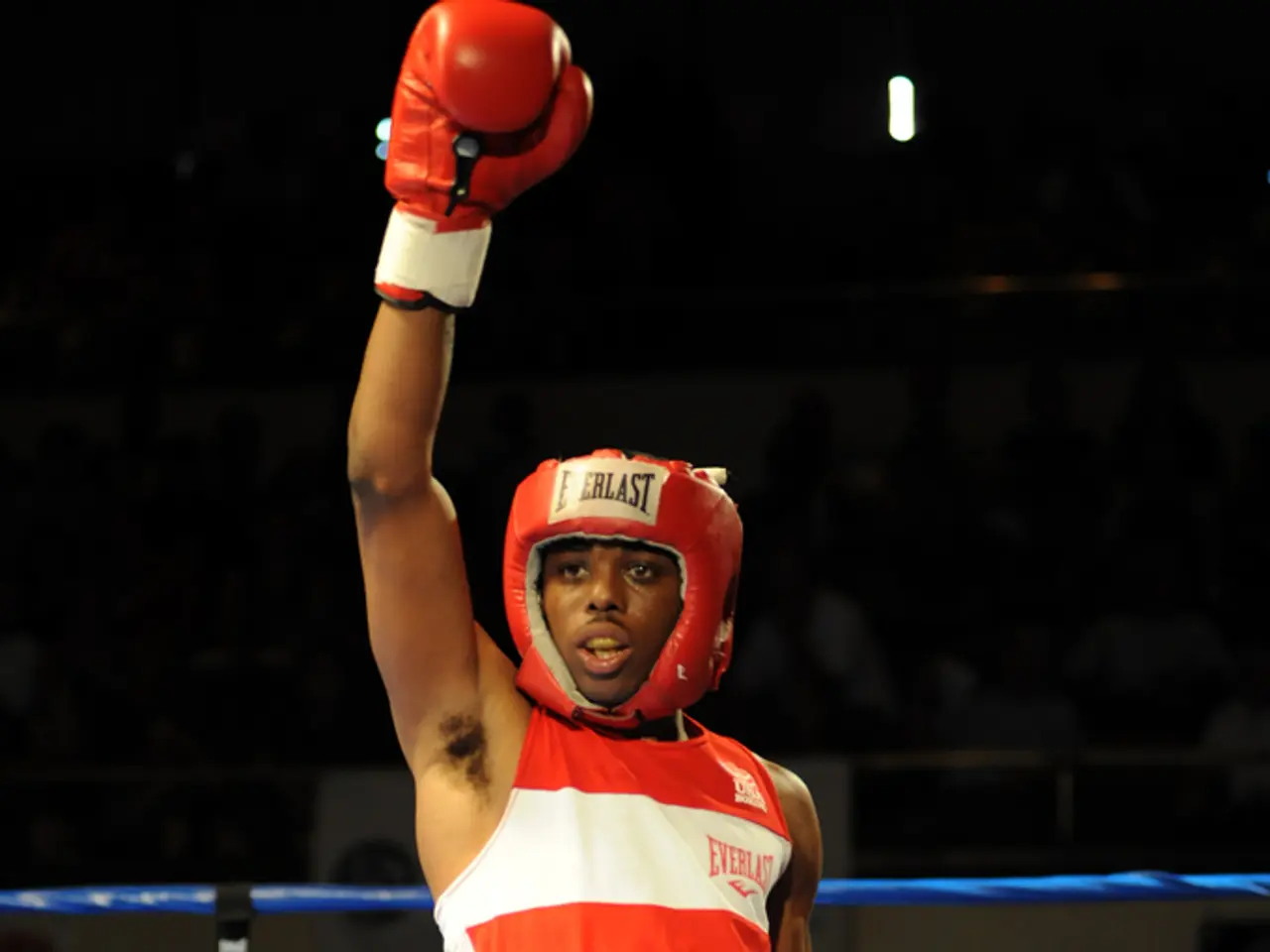Japanese boxing tragedy: Two contestants suffer fatal brain injuries during the same competition
In a shocking turn of events, two boxers, Hiromasa Urakawa and Shigetoshi Kotari, lost their lives following bouts at Tokyo's Korakuen Hall.
On Saturday, Urakawa, a 28-year-old boxer, sustained a brain injury during a knockout loss to Yoji Saito. Despite undergoing a craniotomy in an attempt to save his life, Urakawa passed away. The World Boxing Organization (WBO) expressed their condolences for Urakawa's passing on social media, describing him as a warrior in the ring and a fighter in spirit.
A day earlier, on Friday, Kotari, the Oriental and Pacific Boxing Federation junior lightweight champion's opponent in the bout, sustained a brain injury during a 12-round draw against Yamato Hata on Aug. 2. Kotari underwent emergency brain surgery after the bout, but unfortunately, he did not recover and passed away. The WBO also extended their thoughts and prayers to Kotari's family, team, and the Japanese boxing community, describing Kotari's death as tragic.
The Japanese Boxing Commission has announced all Oriental and Pacific Boxing Federation (OPBF) title bouts will now be reduced from 12 rounds to 10, in response to these tragic incidents.
Safety measures and precautions are being implemented in boxing to prevent fatal brain injuries. Innovations like the Rezon Halos® sports headband, which reduces concussion risk by up to 74%, are being introduced. For serious brain injuries, regulatory bodies such as the Japan Boxing Commission enforce automatic retirement from professional competition. Japan has also introduced enhanced medical coverage at bouts, stricter rules on weight loss practices, and urine testing for fighter safety.
However, despite these efforts, fatal injuries still occur. This has sparked a debate about the safety of boxing and calls for further safety improvements or even bans in some medical circles. The tragic deaths of Urakawa and Kotari serve as a grim reminder of the risks associated with the sport and the need for continued efforts to ensure the safety of all boxers.
[1] Rezon Halos® website: https://www.rezon.com/products/halos [2] Mayo Clinic: Boxing injuries: Prevention, treatment, and safety tips: https://www.mayoclinic.org/healthy-lifestyle/sports-medicine/in-depth/boxing/art-20047323 [3] British Journal of Sports Medicine: Injury surveillance in boxing: a systematic review: https://bjsm.bmj.com/content/51/1/6 [4] Japan Boxing Commission: Medical and Retirement Protocols: https://www.jbc.or.jp/en/regulations/medical-retirement-protocols [5] The Japan Times: Japan's boxing commission to tighten safety rules: https://www.japantimes.co.jp/sports/2018/07/03/boxing/japans-boxing-commission-tighten-safety-rules/
"Breaking news: Following the tragic deaths of Hiromasa Urakawa and Shigetoshi Kotari, a growing debate has emerged in medical circles, insisting on enhanced safety measures and potential bans for boxing, owing to the risks associated with fatal brain injuries. Technologies like the Rezon Halos® sports headband, which can reduce concussion risk by up to 74%, are being advocated as essential advancements in health-and-wellness and sports."
"Given the ongoing concern for medical-conditions and player safety in the sport of boxing, studies and guidelines, such as the ones provided by Mayo Clinic, the British Journal of Sports Medicine, and the Japan Boxing Commission regulations, are being scrutinized to further minimize risks and ensure a safer environment for athletes."




